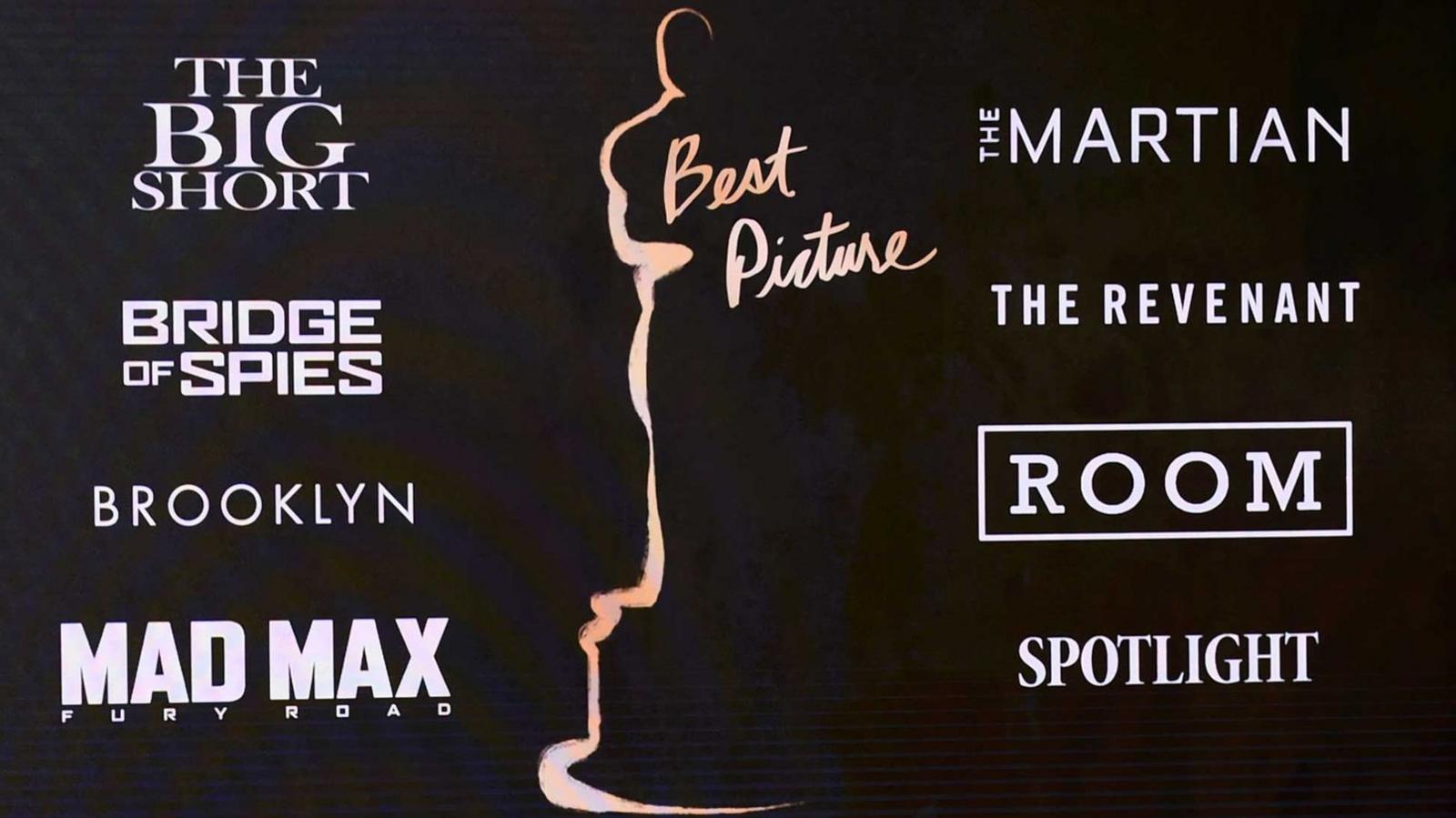Hollywood's reputation on the line over diversity
- Published
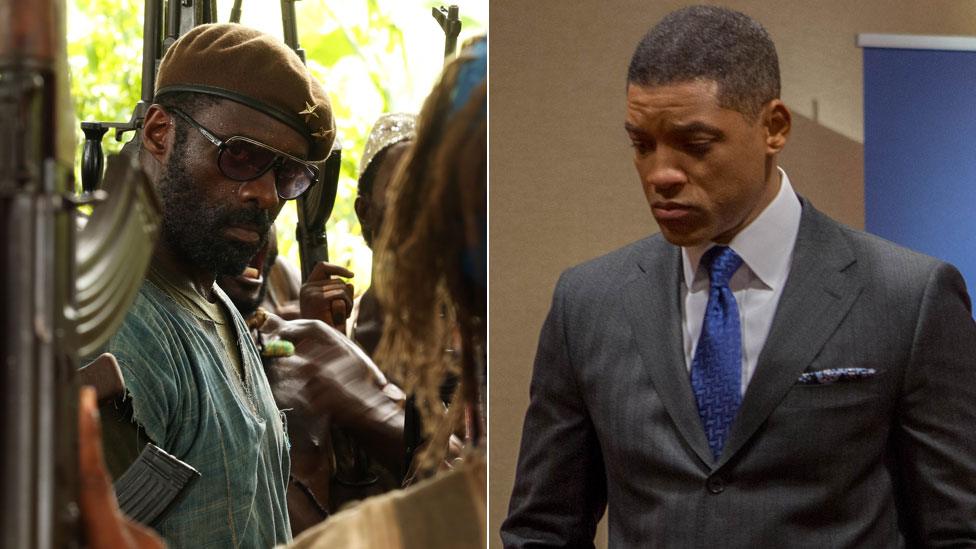
Idris Elba (left) and Will Smith had been tipped by some to be cited for Beasts of No Nation and Concussion
Last year they were making jokes about the lack of any black or Latino performers in the acting categories at the Academy Awards ceremony.
Host Neil Patrick Harris opened the ceremony with a joke about honouring "Hollywood's best and whitest. Sorry, brightest".
So why has the repeat situation created such a toxic row, with prominent figures Spike Lee, Jada Pinkett Smith, external and Michael Moore leading a boycott, and others like George Clooney and Oscar winner Lupita Nyongo speaking out?
And what are the possible "dramatic steps" that Academy of Motion Picture Arts and Sciences (Ampas) president Cheryl Boone Isaacs has promised, external the organisation will take to review its operations?
Film critic Tim Robey believes a festering wound has grown since both the director and star of the Martin Luther King biopic Selma were ignored - despite great critical acclaim - last year.
"There was a feeling going round that because they [Academy voters] had given awards to Twelve Years a Slave the year before, for some reason they thought they were 'off the hook'. So Selma got a terrible handling, really."
Profile of the average Oscar winner, external
How to become an Academy member
David Oyelewo, who didn't get nominated for his lead performance in Selma, revealed on Monday that Isaacs called him in for a meeting after last year's awards "to talk about what went wrong then", though it's not known what specific ideas they discussed.
New selection criteria
The quickest fix would be to get an approved panel to draw up a longlist of nominations for voters to choose from, as many book prizes do.
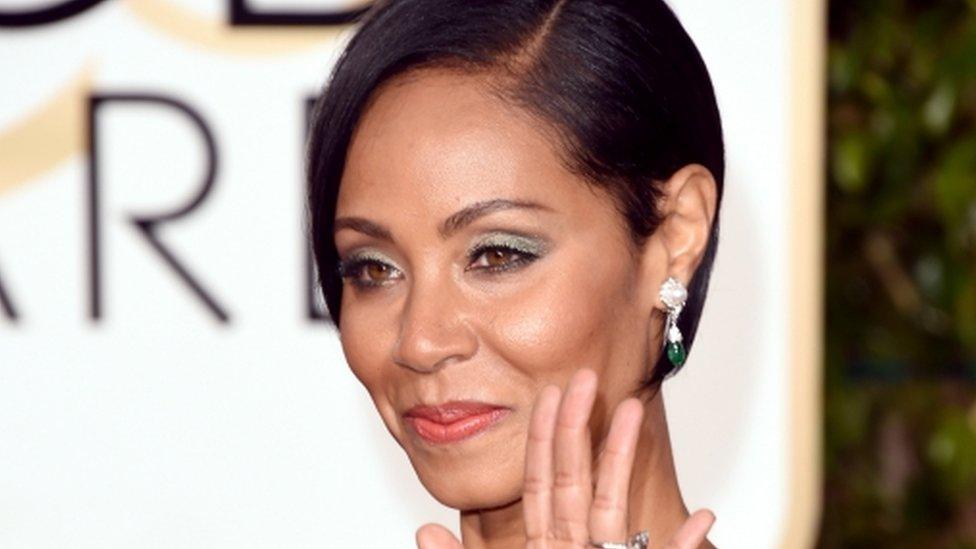
Jada Pinkett Smith has called for a boycott of the Academy awards
However, it would open up new arguments about who is on the panel and the controversial issue of affirmative action and so-called "positive discrimination". It also doesn't guarantee who gets on the shortlist.
Both Tim Robey and Tim Gray, awards editor of Variety magazine in Hollywood, say making the shortlists longer would help. If this year's Best Picture shortlist had featured the 10 films allowed instead of just eight, it might have included the hotly tipped Creed or Straight Outta Compton.
Diversifying the overwhelmingly white, male and over-50 membership has been much discussed and has been attempted in earlier recruitment drives.
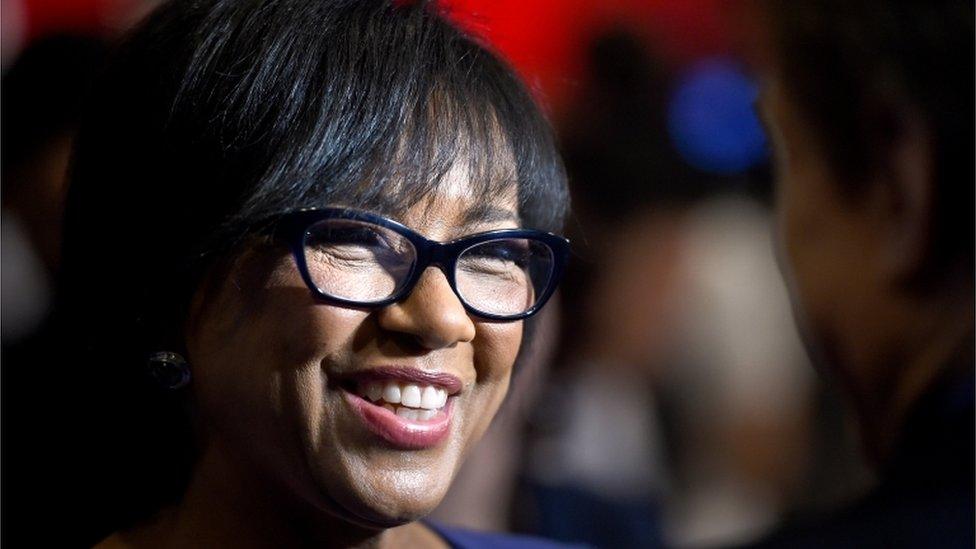
Cheryl Boone Isaacs has ordered a review of current procedures
Bafta in the UK broadened its membership criteria a decade ago to attract younger people from newer digital and online creative industries - though that hasn't really resulted in much more diverse nominations.
But Ampas is an honour society in which experienced industry professionals nominate others in categories for membership and awards. Actors nominate the acting shortlists, directors nominate directors and so on, before voting is opened up for the final winners.
Trying to stop retirees from voting or at least nominating is one possibility, but it would mean an acrimonious internal fight.
However, anyone who gets nominated for an Academy Award is automatically eligible for membership.
Tim Robey says: "It would be a much more elegant solution to the problem to nominate the worthy performances. Once you're nominated you become a member of the club."
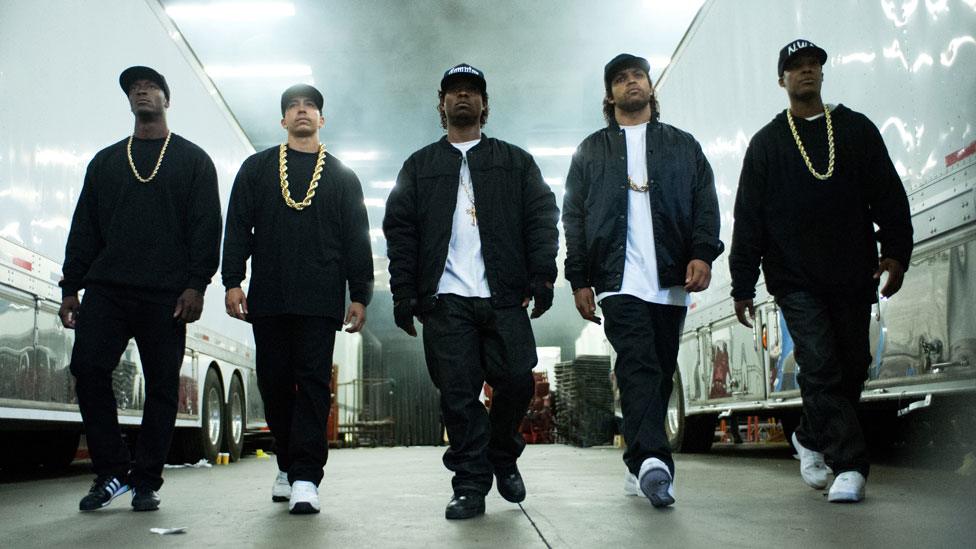
Straight Outta Compton received just one Oscar nomination, for its white screenwriters
This would still take time to feed through to making a notable difference in voting results though.
Tim Gray suggests releasing information on how many votes each nominee on the shortlist received would help reduce acrimony: "I was personally rooting for Will Smith in Concussion and Straight Outta Compton in multiple categories. But did they miss out by one vote? One hundred votes? We'll never know. But if we found out Smith got a lot of votes the reaction might be different."
Lobbying time-pressed voters to watch your film is crucial, says Gray, who fears the omissions reflect the films that perhaps not enough voters bothered to see.
He used his Variety column months back to urge Academy members to see Compton: "The movie was marketed for the general public as a hip hop movie, but I said it's more complex and more spectacular - and more accessible - than you may think."
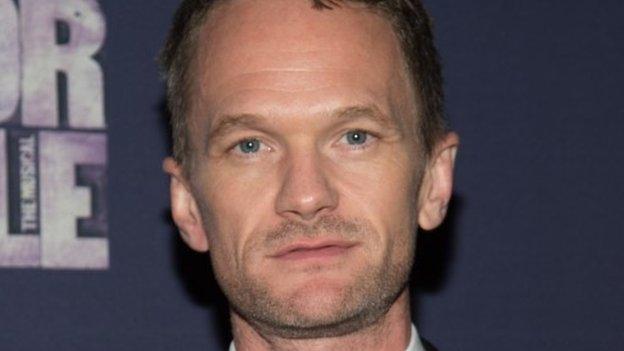
Neil Patrick Harris joked about the lack of black nominees at last year's Academy Awards
Over the years the system has been accused of relying on getting glamorous stars to schmooze easily starstruck, aged voters in their care homes.
Gray says that's unfair: "Outsiders are often horrified by the idea of campaigning, but Hollywood always promotes its product. Disney did not open Star Wars: The Force Awakens without heavy promotion."
Robey agrees: "It's also a case of the studios involved campaigning properly for the performers they've got. I think there should be much better campaigns for the likes of Michael B Jordan. They should really have made it very clear to the Academy that Creed was a film that needed to be taken seriously."
Television taking a lead
Fuelled by the risk-taking of cable channels, US TV is now widely regarded as enjoying a golden age for quality and range.
Tim Gray believes it is 20 years ahead of the movie industry with shows such as Empire, Scandal and Transparent winning big audiences with diverse casts and production staff.
In 2015, Viola Davis became the first African American to win an Emmy for lead actress in a drama for ABC's How to get Away with Murder. It's a virtuous circle, with a genuinely more diverse range of eligible voters in its award-giving bodies.
A boycott of the Oscar ceremony, while controversial, might be a short-term shock tactic that does force action. Not just by stars, but by audiences.
The Academy Awards' television audience was down 16% last year after the Oscar whitewash campaign grew on social media. If the drop is bigger this year there will be action.
There is nothing industry people care about more than their viewing figures.
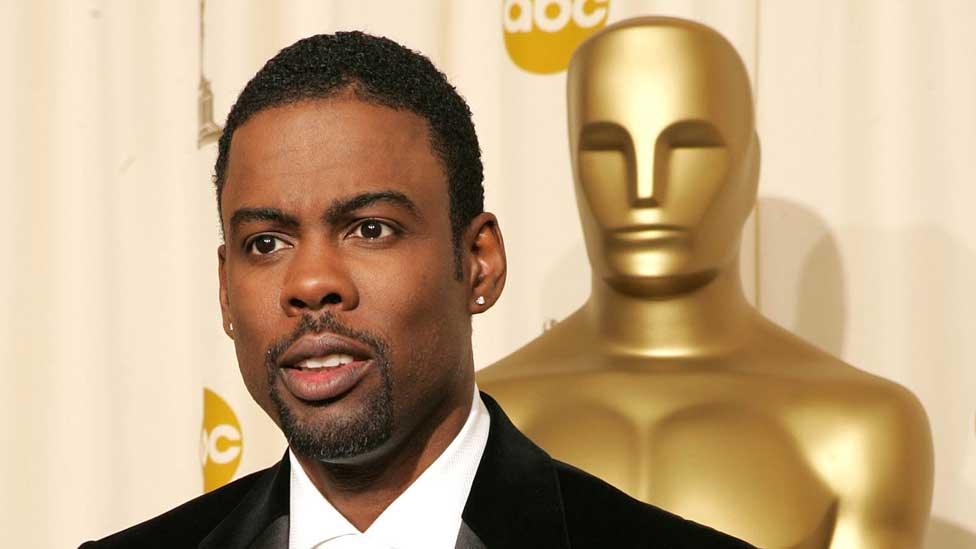
Chris Rock has come under pressure to stand down as this year's host
This year's host, comedian Chris Rock, is himself under pressure to step down.
Ironically, he wrote a scathing article, external in 2014 for the Hollywood Reporter about his enduring frustration with trying to build a career and support other men and women in Hollywood: "They don't really hire black men. A black man with bass in his voice and maybe a little hint of facial hair? Not going to happen. It is what it is."
But Golden Globes presenter Ricky Gervais has encouraged Rock to exploit his power as presenter. "If I were Chris Rock I wouldn't be considering boycotting," he tweeted on Tuesday, suggesting "serious damage" could be done on a live show.
Tim Robey says: "The very fact that he's clearly going to make an enormous fuss about it will make it more public, make the problem more evident to people."
"People are talking a lot about it," says Tim Gray, who points out Variety was running articles about the lack of decent roles for black actors back in the 1950s.
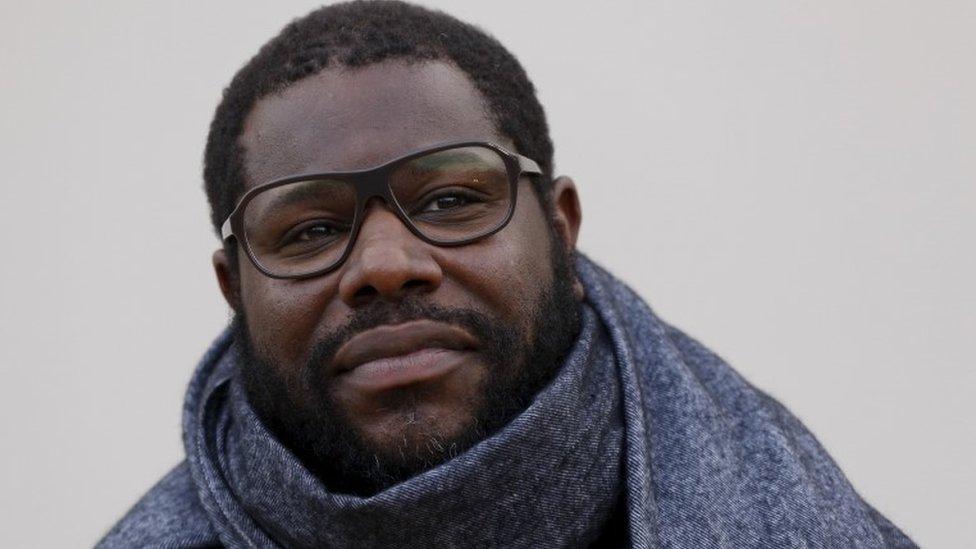
Director Steve McQueen won an Oscar for Twelve Years a Slave
"The pessimist in me says that people have been talking about it for 50 years. The optimist says that social media is going to keep the conversation going, so maybe there will be more action and accountability this time. I hope."
It's worth remembering that Ampas was founded not just to mediate labour disputes but also to improve the movie industry's image.
With films like The Force Awakens proving that black and female actors can lead the biggest blockbusters, it's the Academy's image and institutional reputation that is now at stake.
The lack of black nominees at the Academy Awards was discussed on Radio 4's Front Row.
- Published19 January 2016
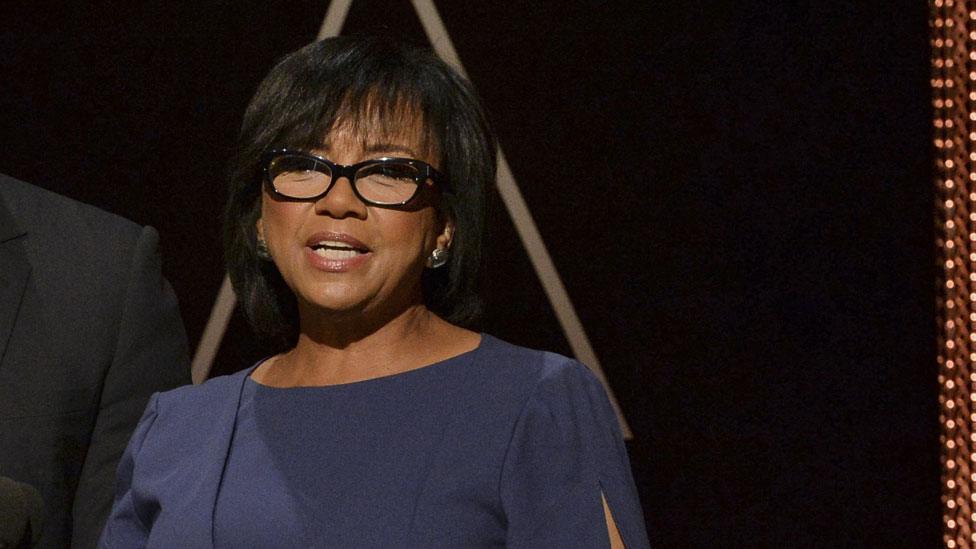
- Published19 January 2016

- Published19 January 2016
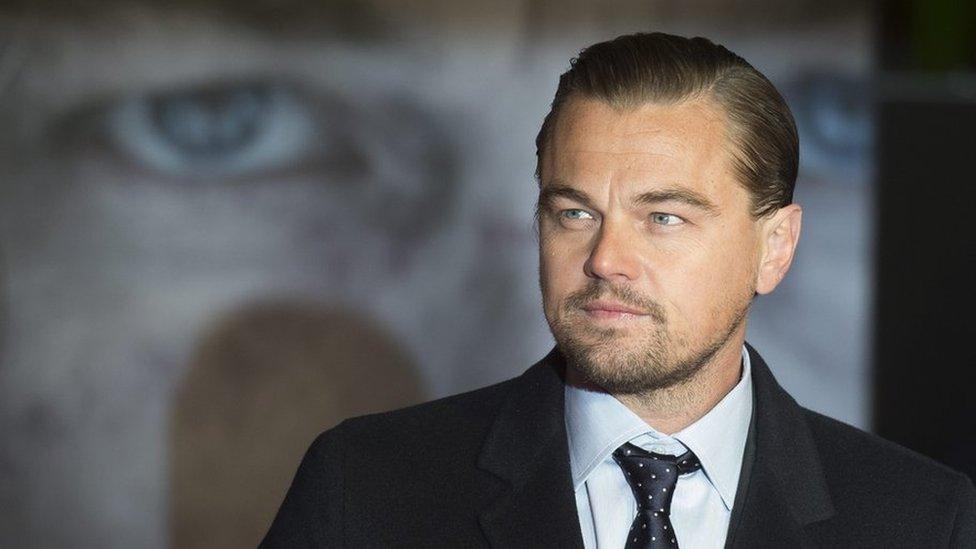
- Published21 October 2015
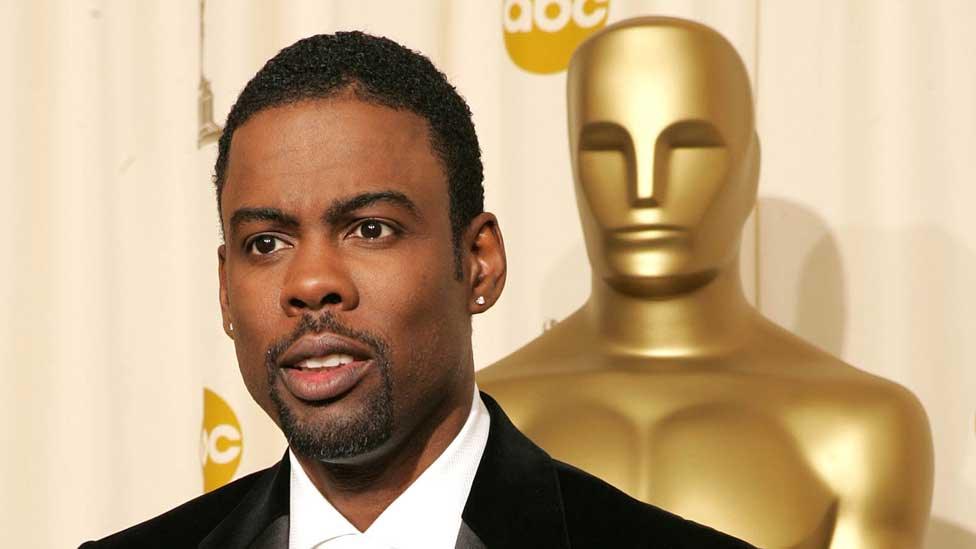
- Published29 February 2016
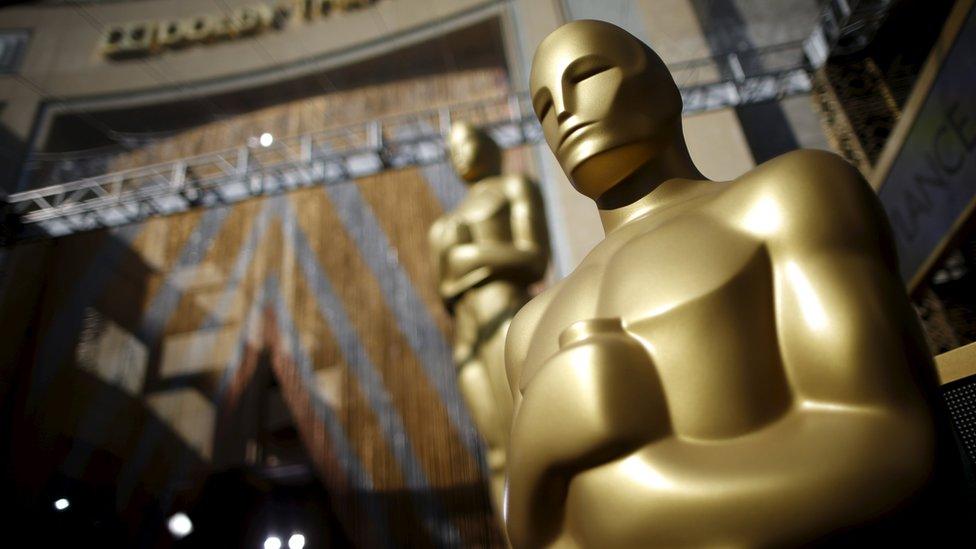
- Published15 January 2016
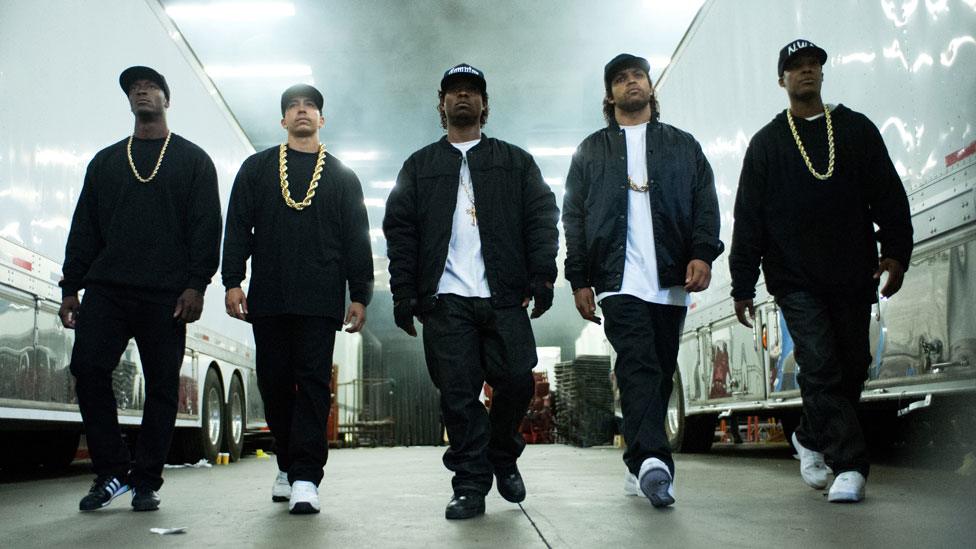
- Published14 January 2016
